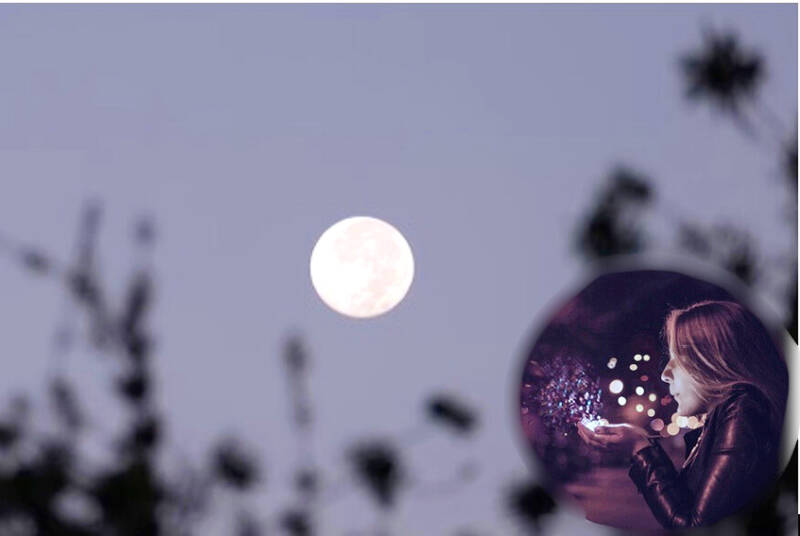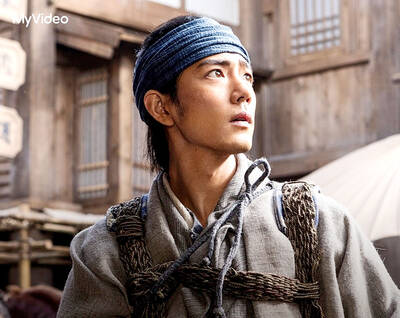對話 Dialogue
清清:華華,你知道嗎?聽說11月5號有「超級月亮」!那天的月亮會特別大、特別亮。
Q?ngqing: Huahua, n? zh?dao ma? T?ngshu? shiy? yue w? hao y?u “ch?oji yueliang”! Na ti?n de yueliang hui tebie da, tebie liang.

Photo: Unsplash 照片:Unsplash 提供
華華:真的嗎?太棒了!我想去河邊看月亮,順便拍照片。
Huahua: Zh?nde ma? Tai bang le! W? xi?ng qu hebi?n kan yueliang, shunbian p?i zhaopian.
清清:聽說在超級月亮出現的那天晚上許願,願望比較容易實現。
Q?ngqing: T?ngshu? zai ch?oji yueliang ch?xian de nati?n w?nshang x?yuan, yuanwang b?jiao rongyi shixian.
華華:是嗎?讓我好好想想要許什麼願。
Huahua: Shi ma? Rang w? h?oh?o xi?ngxi?ng yao x? shenme yuan.
清清:哈哈,我已經想好了,我希望「每天都準時下班」。
Q?ngqing: H?h?, w? y?j?ng xi?ng h?o le, w? x?wang “m?iti?n d?u zh?nshi xiab?n”.
華華:嗯......我希望今年「年終獎金加倍」
Huahua: ?n... w? x?wang j?nnian “nianzh?ng ji?ngj?n ji?bei”!
清清:等你把手邊的專案做完,你的願望一定可以實現的。
Q?ngqing: D?ng n? b? sh?ubi?n de zhu?n’an zuo wan, n? de yuanwang yiding k?y? shixian de.
華華:希望一切能順利!
Huahua: X?wang yiqie neng shunli!
翻譯 Translation
Qingqing: Huahua, did you know? Apparently there will be a “supermoon” on Nov. 5. The moon will be especially big and bright that night.
Huahua: Really? That’s awesome. I want to go to the riverside to watch the moon and take some pictures.
Qingqing: They say if you make a wish on the night of the supermoon, it’s more likely to come true.
Huahua: Really? Let me think carefully about what I want to wish for.
Qingqing: Haha, I already know mine—I wish to get off work on time every day.
Huahua: Hmm. . . I wish for my year-end bonus will be doubled this year.
Qingqing: Once you finish the project you’re working on, your wish will definitely come true.
生詞 Vocabulary
1. 超級月亮 (ch?oji yueliang) supermoon
2. 順便 (shunbian) conveniently; while one is at it
3. 許願 (x?yuan) make a wish
4. 實現 (shixian) realize; come true; fulfill
5. 心想事成 (x?n xi?ng shi cheng) may all your wishes come true; dreams come true
6. 年終獎金 (nianzh?ng ji?ngj?n) year-end bonus
7. 加倍 (ji?bei) double; multiply
8. 專案 (zhu?n’an) project (often a work-related task or assignment)
教材音檔 Audio Files
國立清華大學華語中心提供
By National Tsing Hua University Chinese Language Center:

Have you ever seen a circular intersection where cars continuously flow in one direction around a central island? That is a “roundabout,” a well-known alternative to traditional intersections. Drivers enter and exit at different points without relying on traffic lights. Their primary purpose is to improve traffic flow and minimize the likelihood of high-speed collisions, particularly dangerous T-bone and head-on crashes. Roundabouts have existed and been implemented for over a century. In the 1960s, the modern roundabout emerged in the UK, with added rules for yielding. Unlike intersections with red lights, roundabouts allow vehicles to continue moving at a

A: So you’re reading Jin Yong’s martial arts novel again? B: Yup, Jin’s novels are so fascinating, especially the trilogy: “Legends of the Condor Heroes,” “Return of the Condor Heroes,” and “Heaven Sword and Dragon Saber.” A: The late novelist published his first story in 1955, which means this year marks the 70th anniversary of his “wuxia” world. B: Wasn’t an English version of “Legends of the Condor Heroes” also released in 2018? A: Yes, but the debate over the translation of kung fu moves continues — like the evil move “Nine Yin Skeleton Claw.” A: 你又在重讀金庸的武俠小說啦? B:

If you’ve recently spotted adults parading around with cuddly toys dangling from their designer handbags, your eyes haven’t been deceiving you. The playful trend of adorning bags with cute charms has become popular among people of various ages. Plushies like Labubu and anime and manga characters such as Chiikawa have become must-have accessories that make personal statements. The practice of attaching charms to personal items has been common across cultures throughout history. In ancient civilizations, charms were often used as symbols of protection, good luck, or identity. Fast-forward to more modern times, and style icons like Jane Birkin, a

A: Apart from Jin Yong, the late martial arts novelists Liang Yusheng and Gu Long were also very popular. B: Wasn’t Liang a pioneer of the “new school” wuxia genre in the 20th century? A: Yup, I really like his Tianshan mountain series. All the characters — such as the “White Haired Demoness” — are so vivid. B: The roles in Gu’s books are lively, too — like the “Fragrant Commander” Chu Liuxiang. A: And the TV drama adapted from the Chu Liuxiang series swept across Taiwan in the 1980s, with ratings surging over 70 percent at that time.